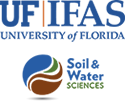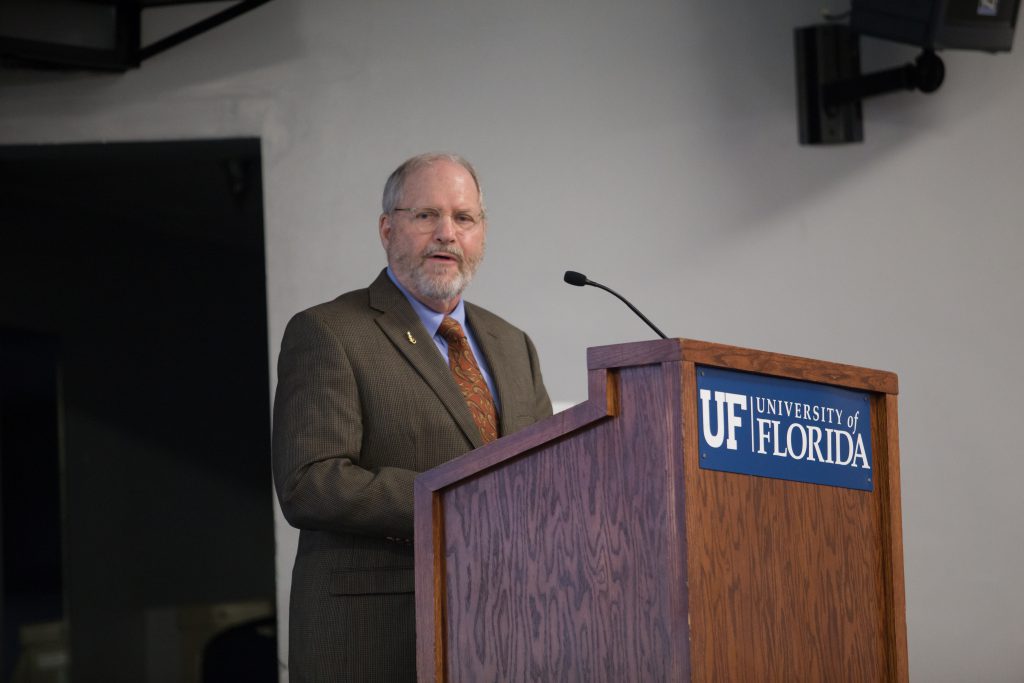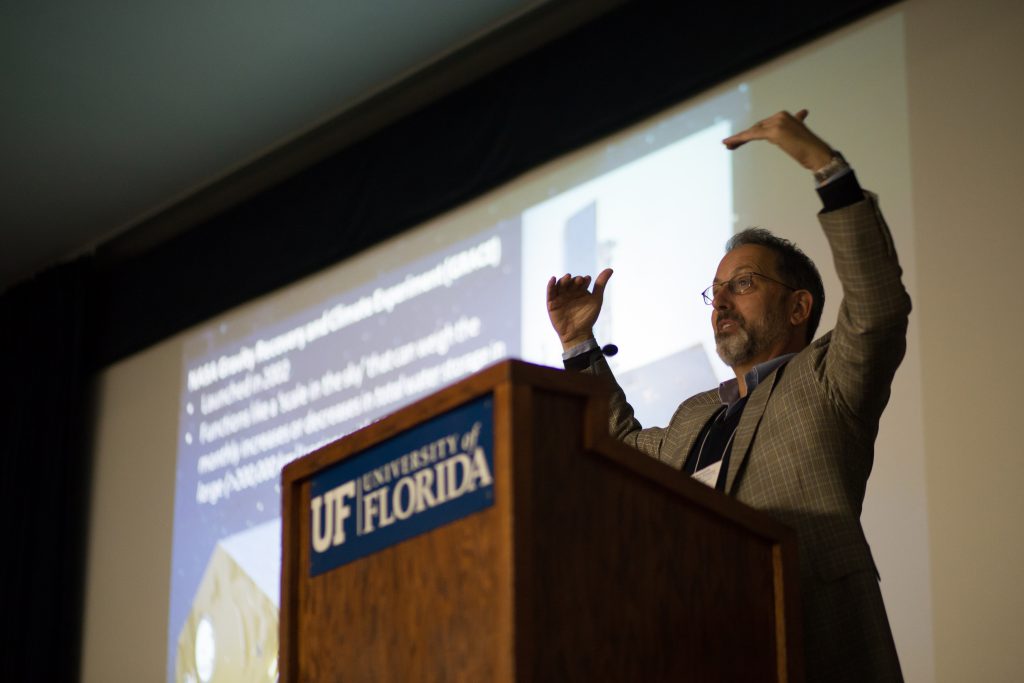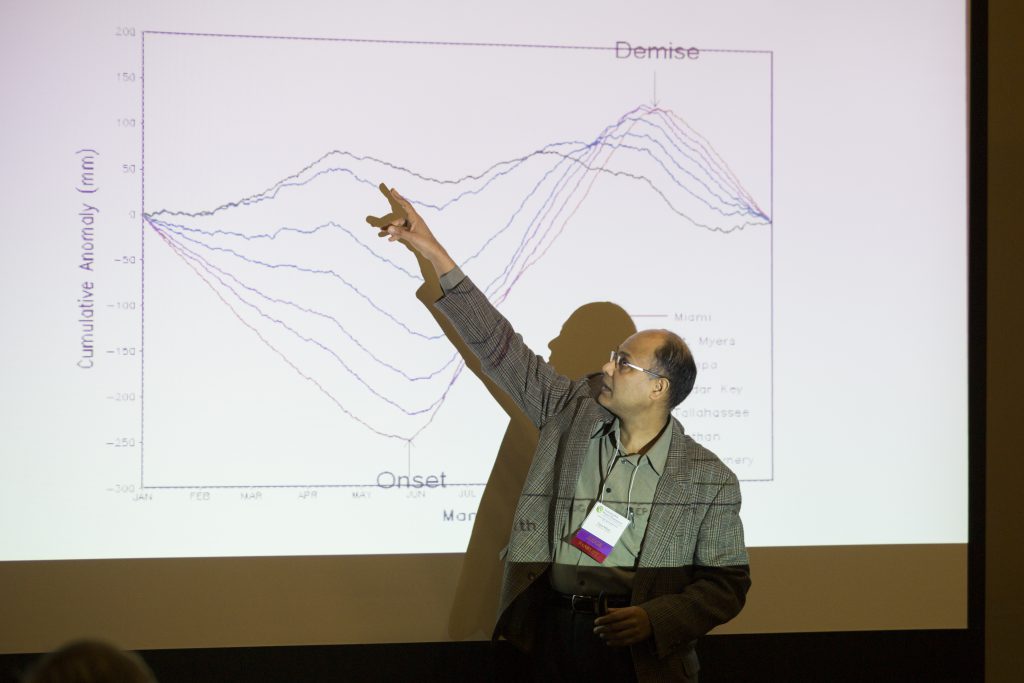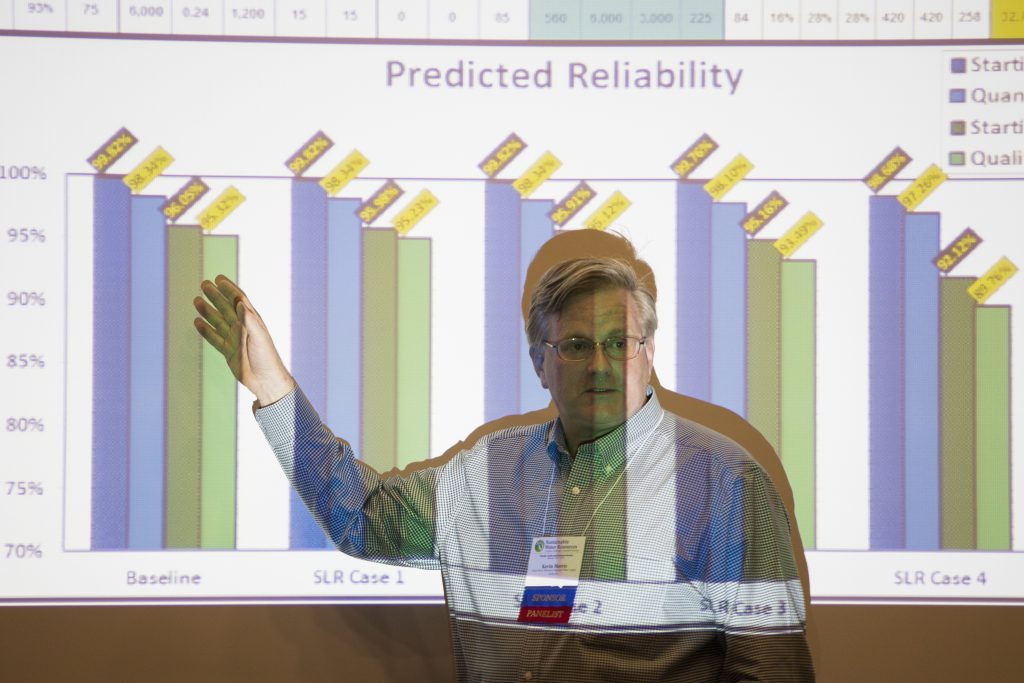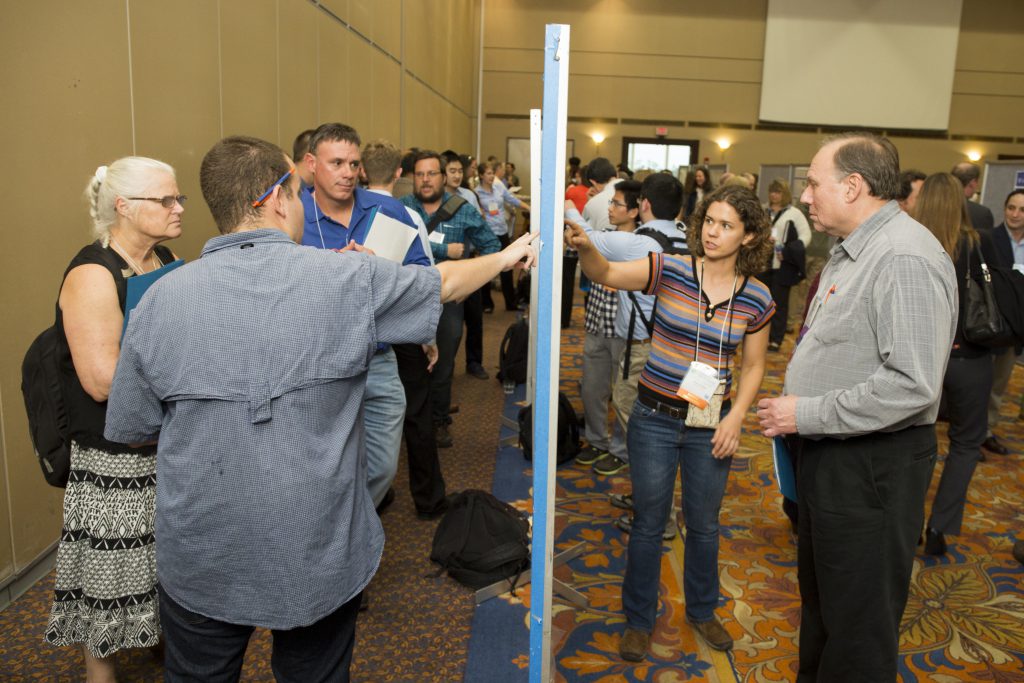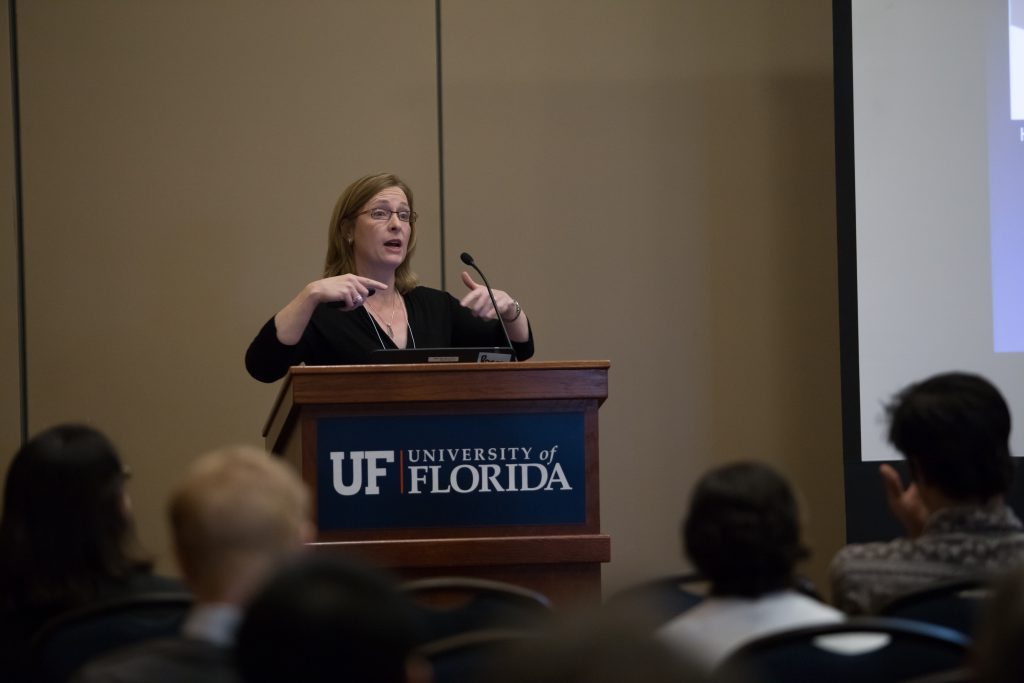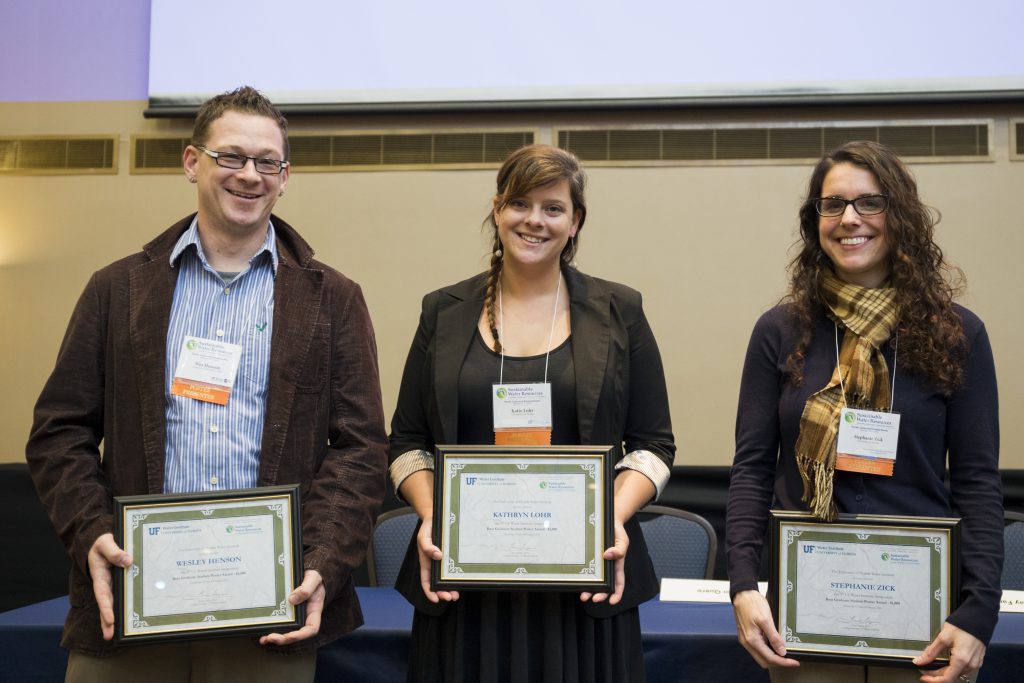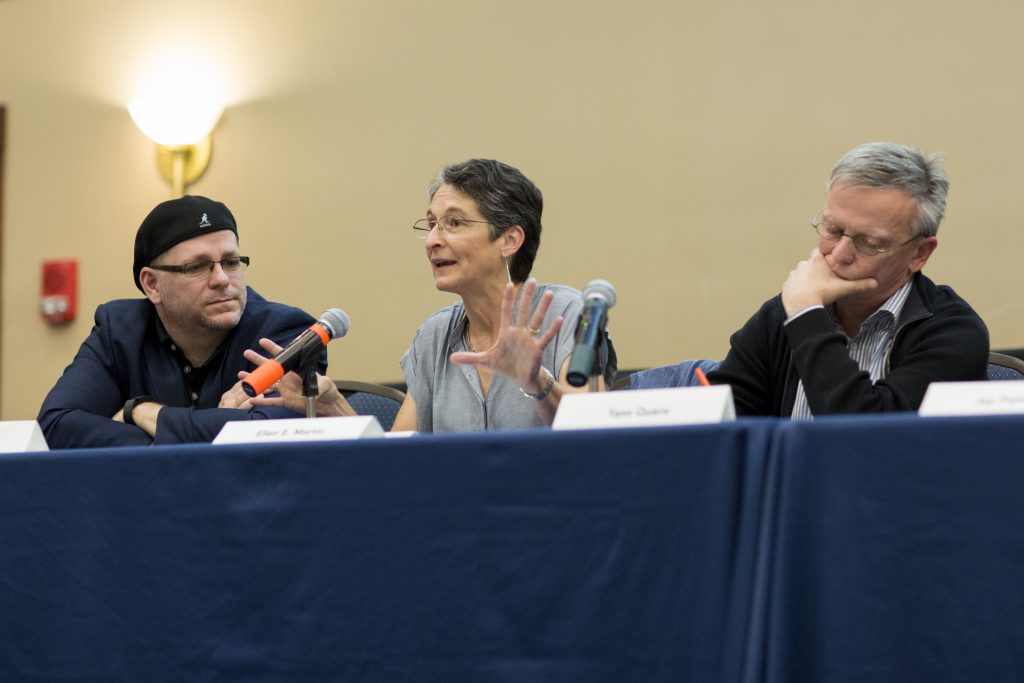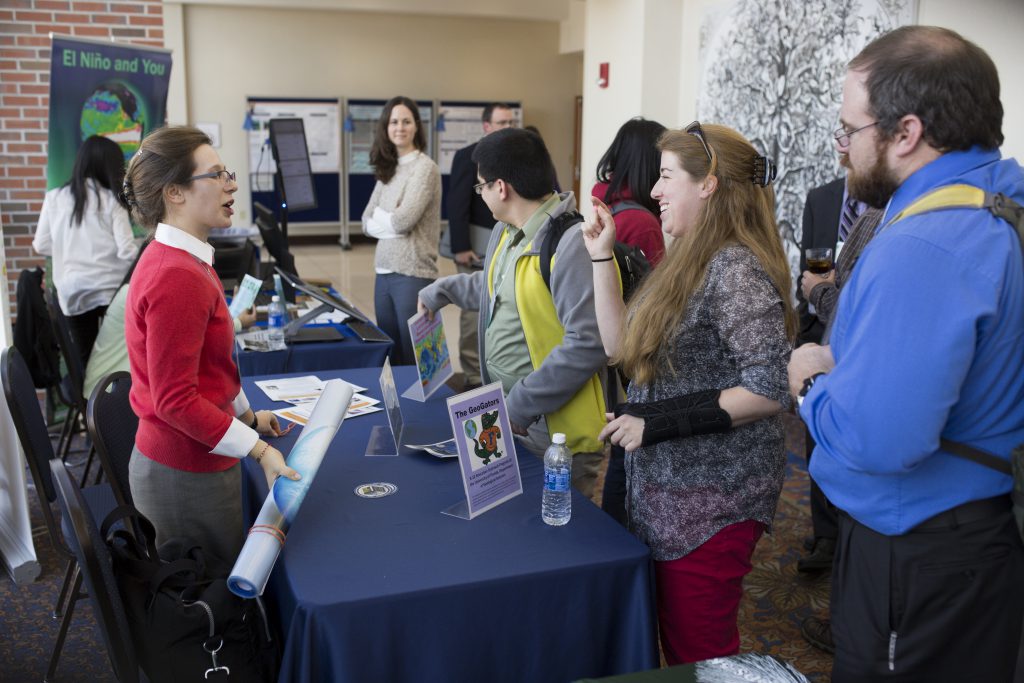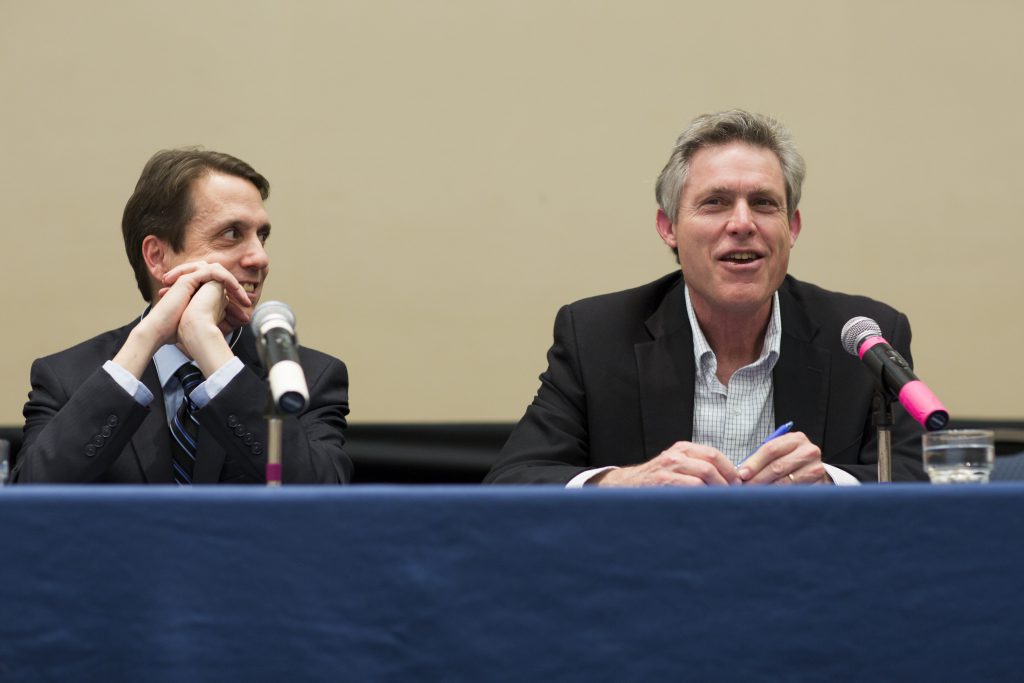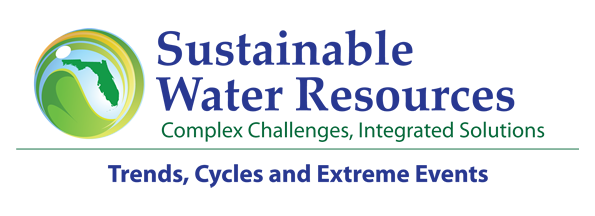
5th UF Water Institute Symposium
The UF Water Institute continued its tradition of bringing together scientists, industry representatives and public policy makers to focus on critical issues confronting Florida’s water future at the 5th UF Water Institute Symposium. The two-day gathering provided a refreshing venue for cross-disciplinary dialogue with over 325 participants focused on understanding causes of trends, cycles and extreme events and the consequences for human, agricultural and natural systems. Dr. James S. Famiglietti provided the keynote (click here for video) and the program of over 160 contributed oral and poster presentations, and panel discussions addressed new science, technology, and policy around the following themes:
DRIVERS of and interactions among trends, cycles and extreme events
Global atmospheric, climatic and oceanic cycles, including the El Niño Southern Oscillation, North Atlantic Oscillation, and Atlantic Multi-decadal Oscillation, are important drivers of variations in rainfall patterns across the southeastern U.S., changes in drought and flood cycles, and sea level rise along the eastern U.S. coast that is more rapid than the global average. Limited understanding of periodicity and trends in these drivers, feedbacks among drivers, and links to regional and local conditions hamper our ability to model, predict and prepare for dynamic environmental changes. This theme solicits presentations that illustrate the breadth of questions surrounding global climatic and oceanic patterns, the latest understanding of these patterns, and their role as drivers of regional and local-scale changes and extreme events.
IMPACTS to coastal, surface water and aquifer systems
Trends, cycles and extreme events are generating diverse impacts on coastal waters, surface water, and groundwater. Long-term atmospheric warming will likely increase evaporation and transpiration, thereby decreasing surface water supplies and intensifying demands on groundwater use. Changes in drought and flood cycles may diminish the ecological resilience of lakes, rivers, streams and wetlands, in turn, making them more susceptible to an increasing number of human-induced stresses. Larger and more frequent pulses of nutrient-enriched freshwater into coastal systems may result in harmful algal blooms, fish kills and die-back of seagrasses. This theme solicits presentations that explore diverse impacts of trends, cycles and extreme events, with a focus on understanding hydrologic implications, ecosystem responses and resilience, and socio-economic consequences.
SOLUTIONS that integrate science, technology, policy and management
There are many complex challenges to sustaining natural ecosystems while meeting human needs for water. These challenges include managing water resources within human-altered landscapes, responding to sea level rise, and adapting to more severe flooding and more prolonged droughts. Adaption to these changes will require innovative solutions that integrate science, technology, policy and management to increase ecosystem resilience to global change and extreme events while providing sufficient clean water for human use. Some of the challenges to developing integrated approaches are lack of adequate coordination among jurisdictions, insufficient funding, and uncertainty regarding the severity of future climatic events. Novel approaches will be needed to update laws, rules, programs and financing, along with refocusing science and technology on evolving global changes. This theme solicits presentations focused on solutions that employ innovative science and technology, create improved policies, generate sufficient financial resources and foster stakeholder engagement to yield sustainable management of water resources.
Linking Water Science and Art has been a constant theme in all five of the WI Symposia by integrating painting, photography, or musical compositions. This year took us into the art of the written word by partnering with the unique collaborative effort at UF entitled “Imagining Climate Change: Science & Fiction in Dialogue.” The WI Symposium’s penultimate plenary session hosted the ICC Colloquium opening roundtable that featured authors, scholars, and scientists committed to the work of imagining our collective climate futures. UF President Kent Fuchs opened the session with brief remarks on Water, Science and Art, providing some personal reflections. Cynthia Barnett, award-winning environmental journalist and author, highlighted the ICC roundtable in the context of the Symposium goals and the potential synergies of science, journalism, and creative fiction in communicating complex water and climate issues to the public. The video of the entire Session is available at this link. Specific portions of the video are viewable at the links below:
- Introduction of President Kent Fuchs and Cynthia Barnett
- President Kent Fuchs
- Cynthia Barnett
- Imagining Climate Change panel
The final plenary anchored us in reality of the importance of secure water future for Florida. Panel members shared personal and institutional perspectives of major threats to secure and sustainable water resources and mechanisms to overcome these threats through policy, regulation, management and conservation. The Session is available at this link.
For details on the 5th UF Water Institute Symposium program, presentations and participants, check out the links below:
- Program (PDF) – View the 2016 Water Institute Symposium Program
- Book of Abstracts (PDF) – View abstracts by clicking on author name or title
- Presentations and Abstracts – Click on each session to find abstracts and presentations
- Poster Session and Awards – View all poster abstracts and Student Award Winning posters!
- Photos
We gratefully acknowledge our Sponsors:
Founding Sponsor

Silver Sponsors



Bronze Sponsors


Graduate Student Poster Award Sponsor
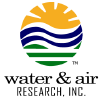
Students Sponsors
